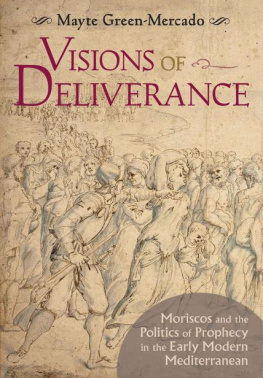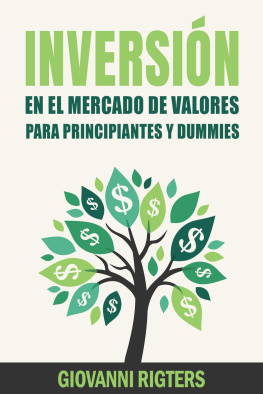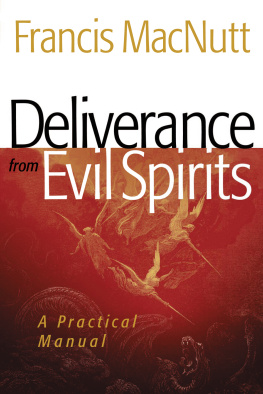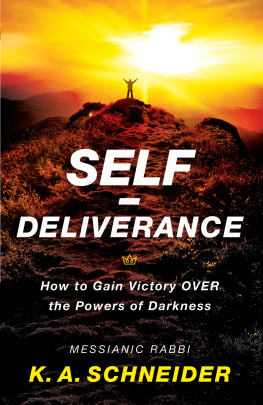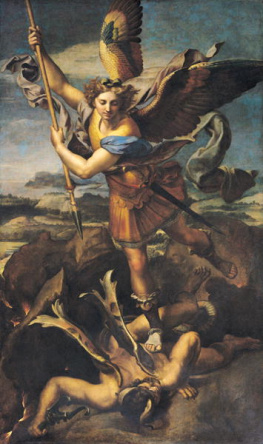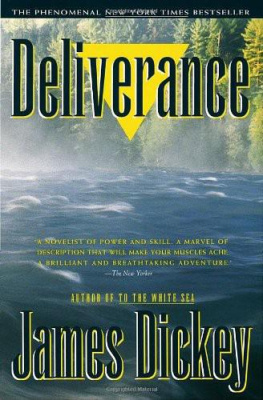Mayte Green-Mercado - Visions of Deliverance
Here you can read online Mayte Green-Mercado - Visions of Deliverance full text of the book (entire story) in english for free. Download pdf and epub, get meaning, cover and reviews about this ebook. year: 2020, publisher: Cornell University Press, genre: Religion. Description of the work, (preface) as well as reviews are available. Best literature library LitArk.com created for fans of good reading and offers a wide selection of genres:
Romance novel
Science fiction
Adventure
Detective
Science
History
Home and family
Prose
Art
Politics
Computer
Non-fiction
Religion
Business
Children
Humor
Choose a favorite category and find really read worthwhile books. Enjoy immersion in the world of imagination, feel the emotions of the characters or learn something new for yourself, make an fascinating discovery.
- Book:Visions of Deliverance
- Author:
- Publisher:Cornell University Press
- Genre:
- Year:2020
- Rating:4 / 5
- Favourites:Add to favourites
- Your mark:
- 80
- 1
- 2
- 3
- 4
- 5
Visions of Deliverance: summary, description and annotation
We offer to read an annotation, description, summary or preface (depends on what the author of the book "Visions of Deliverance" wrote himself). If you haven't found the necessary information about the book — write in the comments, we will try to find it.
Visions of Deliverance — read online for free the complete book (whole text) full work
Below is the text of the book, divided by pages. System saving the place of the last page read, allows you to conveniently read the book "Visions of Deliverance" online for free, without having to search again every time where you left off. Put a bookmark, and you can go to the page where you finished reading at any time.
Font size:
Interval:
Bookmark:
VISIONS OF DELIVERANCE
MORISCOS AND THE POLITICS OF PROPHECY IN THE EARLY MODERN MEDITERRANEAN
M AYTE G REEN -M ERCADO
CORNELL UNIVERSITY PRESS
Ithaca and London
The affairs of Spain were so confused, men were so perplexed, that it seemed like it was a heavenly scourge, and that another destruction and end would come over these kingdoms, worse than it had been in the times of the King Don Rodrigo. They believed in omens; they cast predictions and prognostications threatening great misfortune. Some demons invented who knows what prophecies, which some said were by St. Isidore, archbishop of Seville, others by Fr. Juan de Rocacelsa [John of Rupescissa], and one of Merlin and other wise men, and of St. John Damascene [John of Damascus], and weeping or plaints that St. Isidore cried over Spain. And in all of them [there were] so many bad signs of calamities and destruction for Spain that people were terrified and went about dazed.
Prudencio de Sandoval, Historia de la vida y hechos del emperador Carlos V (1604), part 1, book 6, chapter 12
Over the years I have amassed debt that will never be repaid. I would like to thank people who have been instrumental in the development of this book. I am grateful to my mentors at The University of Chicago who saw this project come to life when I was a graduate student. Cornell H. Fleischer, Tamar Herzog, Fred Donner, John E. Woods, and the late Farouk Mustafa taught me to think in deep, broad, and connected ways. David Nirenberg supported my work at a crucial moment. His work has served as an inspiration throughout the years, and I am grateful for the opportunity to work with him.
There are friends and colleagues without whose help I would not have been able to complete this bookpeople who are true scholars in every sense of the word. Ryan Szpiech, a model colleague and mentor, read an initial full draft of the manuscript and gave valuable feedback. My conversations and collaborations with Evrim Binba enriched my work in countless ways, from helping me acquire sources to reading every single chapter of this book. I am deeply grateful for his friendship and constant support. My husband Javier Castro-Ibasetas sharp and critical feedback on every aspect of my work has made me a better scholar. He saw this project in its very beginning stages, and has been here to its very end. I am grateful to him for reading and rereading and never growing tired of it.
Many colleagues helped me refine many of the ideas in this book. I had the privilege and honor to have been part of the Mediterranean working group and the Islamic Studies Program at the University of Michigan. Numerous friends and colleagues discussed specific aspects of my book. Thanks to Kathryn Babayan, Paroma Chatterjee, Hussein Fancy, Enrique Garca Santo Toms, Gottfried Hagen, Michele Hannoosh, Karla Mallette, Devi Mays, and Diane Owen Hughes. Karla Mallete and Michele Hannoosh provided important feedback on my translations from Italian and French. I am grateful to all for making me feel like I was part of a strong intellectual family. Four brilliant scholars and dear friends, Mara Dolores Morillo, Evelyn Alsultany, Deirdre De la Cruz, and Shobita Parthasarathy, have enriched me intellectually and personally, and continue to be with me in spite of the distance. I am grateful to the WOCAP network at the University of Michigan for the two writing grants that allowed me to spend dedicated time writing this book in the company of Deirdre, Shobita, and Evelyn during two productive and memorable summer writing retreats.
My dear friends and life sisters, Montse Rabadn, Rosa Ramos, Betl Baaran, and Lena Jansen, saw this project from dissertation to book. I am grateful that they are part of my life.
Having recently arrived at Rutgers University, Newark, I cannot be more grateful for the warm welcome I have received by my great colleagues in the Federated History Department, and my colleagues in the Middle East and Islamic Studies Working Group. I would like to thank especially Nkhet Varlk and Leyla Amzi for their friendship, and Gary Farney and Karen Caplan for their support and mentoring over the past two years. I would like to acknowledge and thank Rutgers Universitys Research Council subvention grant, which has allowed me to defray significant publication costs related to this book.
I want to express my appreciation to the Schoff Fund at the University Seminars at Columbia University for their help in publication. The ideas presented in chapter 3 have benefitted from discussions in the University Seminar on Ottoman and Turkish Studies.
Colleagues in the US and abroad have also been instrumental in the development of my project. Claire Gilbert, Daniel Hershenzon, and Danny Wasserman read early drafts of chapters. I thank them for their feedback and for their friendship. Special thanks go to Maribel Fierro, Fernando Rodrguez Mediano, Rafael Bentez Snchez Blanco, and Bernard Vincent for their guidance, encouragement, and assistance in locating sources. I would like to thank especially Mercedes Garca-Arenal for being an anchor in Spain when I first started thinking about this project, and for her support throughout the years.
I am grateful for the opportunity to share my work recently at the Mediterranean Seminar, Spain North Africa Project, University of Michigan, The University of Chicago, Duke University, University of North Carolina, University of Minnesota, Columbia University, University of Western Ontario, Georgetown University in Qatar. Parts of chapter six appeared in the Journal of the Economic and Social History of the Orient. I want to thank the editors for allowing me to use the same material in this book. I would also like to thank the anonymous readers assigned by Cornell University Press for their generous and thorough feedback, which was crucial as I revised the manuscript.
I thank my sister, Sylmarie Green, for being there even when I was too busy to chat, and for loving me in spite of my absence. My in-laws Maricarmen Ibaseta and Jos Antonio Castro have provided support, love, and many cozy spaces to write in Spain. I dedicate this book to the two Sylvias in my life, my daughter, and my mother, Sylvia Mercado Martn, who would have been very proud.
For Arabic and Ottoman Turkish, I have followed the International Journal of Middle Eastern Studies guidelines. Aljamiado texts have been transcribed following the Coleccin de Literatura Espaola Aljamiada y Morisca (CLEAM). All transcriptions and translations of Spanish, Italian, and French sources have followed the original texts and have not been modernized. Throughout the book, Julian and Gregorian dates have been used. Dates in the Islamic lunar calendar (Hijrqamar) have not been provided. For all translations of the Qurn I have used The Qurn. Translated by Alan Jones. Exeter: Gibb Memorial Trust, 2007.

Iberian Peninsula in the Sixteenth and Seventeenth Centuries.

Morisco towns in the Kingdoms of Aragon and Valencia.

The early modern Mediterranean.
On June 13, 1601, at 11:00 a.m., the bell of the chapel of St. Nicolas of Bari in the small town of Velilla del Ebro near Zaragoza, Aragon, spontaneously began to toll. The following day, a large crowd gathered as the bell continued ringing. On the third day it mysteriously stopped. Then, as if announcing a prodigious event, the tocsin resumed for another week before falling silent. This was no ordinary bell, as the residents of the town were well aware. It was said to have tolled in 711, warning about conquest and, soon after, Muslim troops overran the Iberian Peninsula.
Font size:
Interval:
Bookmark:
Similar books «Visions of Deliverance»
Look at similar books to Visions of Deliverance. We have selected literature similar in name and meaning in the hope of providing readers with more options to find new, interesting, not yet read works.
Discussion, reviews of the book Visions of Deliverance and just readers' own opinions. Leave your comments, write what you think about the work, its meaning or the main characters. Specify what exactly you liked and what you didn't like, and why you think so.

